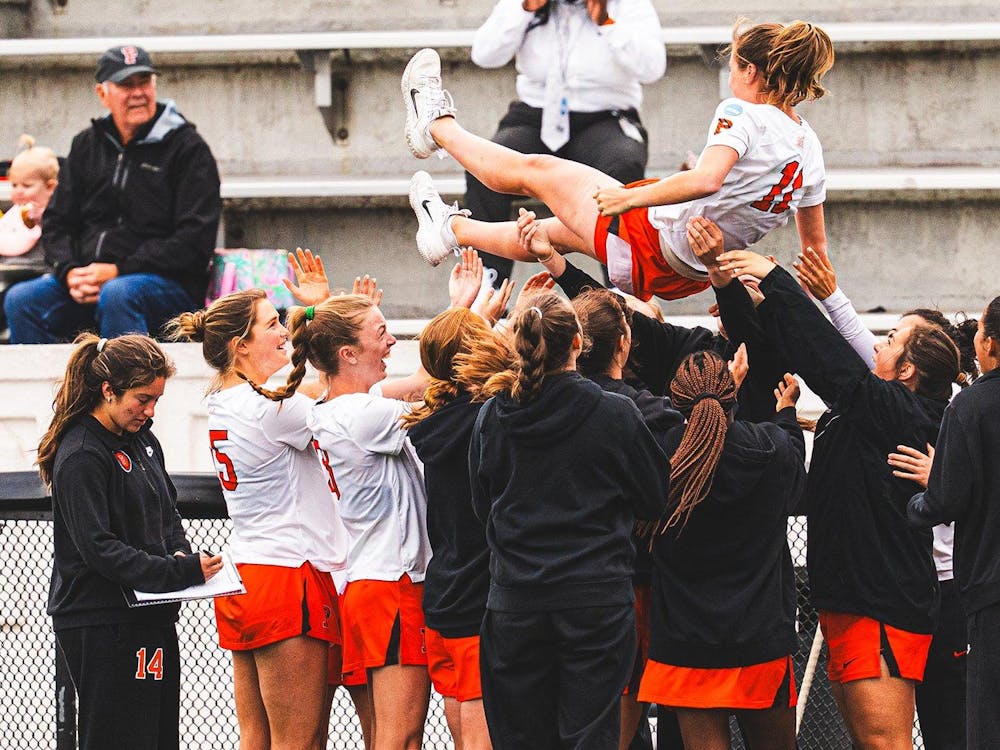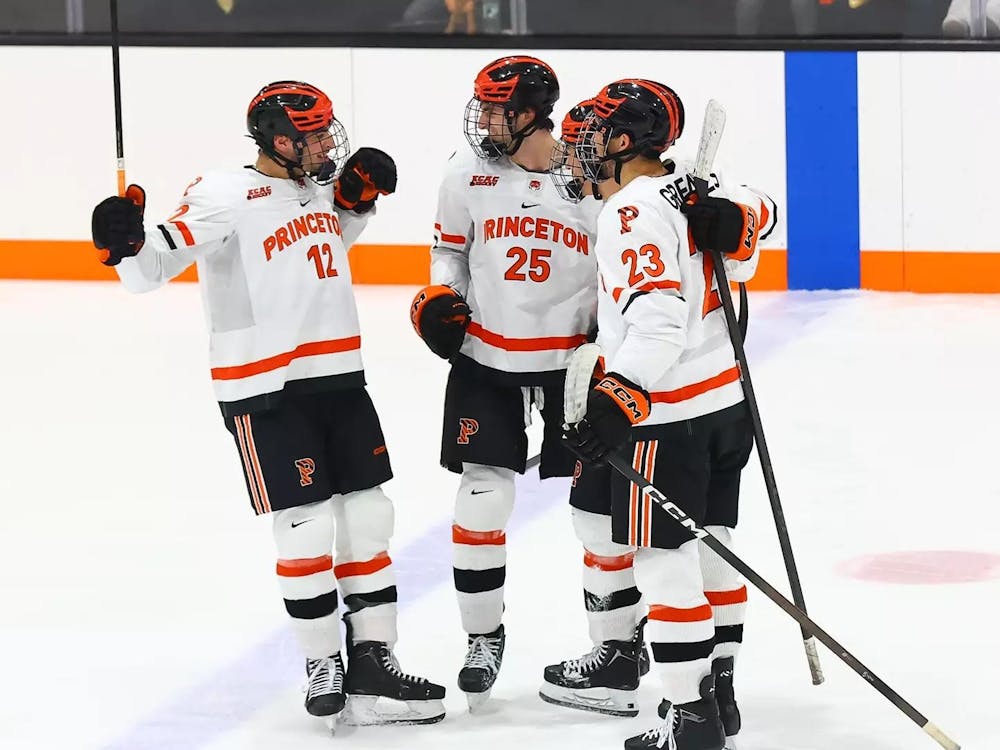Year after year, William Wallace, that rainbow-faced warrior from Scottish lore rallied his troops against the more powerful armies to the south. He continued his battle against great odds, and fought until he could fight no more.
Year after year, the Princeton sprint football team continues to battle against teams with more men, players with longer football backgrounds and teams with better recruiting advantages.
Unfortunately for the Tigers, however, the similarities don't stop there. Over the last three seasons, the team has accumulated a paltry 3-15 record, only slightly better than Wallace's overall outcome of 0-1.
"Basically, sprint football has been down in the past couple of years," senior captain and tailback Christian Gomez said. "A lot of it has to do with inconsistency in getting people out to the team and building a solid nucleus."
Before building a solid nucleus, though, the team first had to worry about simply putting enough people on the field to play. If the team did not have a large showing for tryouts, it would have likely been forced to forfeit all of its games.
"We were pretty low on numbers to start off with," Gomez said. "We had something like 28, but a good showing at tryouts really helped us."
Now that Princeton knows it will have a sprint football team, though, the group will go about the season as it always has. The squad will prepare for each football game hoping to emerge with a victory, just as Wallace always rallied the troops hoping to hold off the English attack just a little longer.
To give the team credit, though, Princeton encounters several disadvantages in the recruiting stages of the game which inhibit its abilities to put out a strong team against its conference foes Cornell, Penn, Navy and Army.

Unlike his foe Edward I, who drafted his men into service, Wallace was only able to take the brave men who volunteered.
"Sprint football is the only varsity sport on campus in which we don't get recruits from the admissions office," Gomez said. "And then it's hard to get players from on campus when the enrollment is so small."
Lack of quantity does not necessarily beget a lack of quality. To fill its roster each year, Princeton generally recruits on-campus athletes who either played football in high school and simply are not big enough to play heavyweight here, or who played other sports before Princeton.
"Everyone on the sprint team is some sort of athlete who wants to compete," senior captain and inside linebacker Andy Morabito said. "A lot of them thought they were done with top athletic competition and did not even know there was a sprint football team here."

Princeton will send its team onto the field six times this season, once against Navy and Army, and then two contests apiece with Cornell and Penn. The five schools comprise the entirety of the Collegiate Sprint Football League.
The perennial powerhouse in this league is Army, which, by sheer numbers, usually blows away all opponents. Army has become such a strong team recently that it has even begun to play, and beat, several Division I junior varsity football programs.
"There's no question about the strength of Army's team," Morabito said. "It's hard to contend with their numbers."
The service academies require each of their students to play a sport, which usually enables them to have close to 100 players go out for the team, compared to Princeton's annual average of approximately forty.
Last season, though, Penn managed to squeak out a game against West Point and, surprisingly, took home the conference title. Most pundits say it was a fluke, but the Quakers will be out to prove otherwise this year.
"It's hard to say about Penn. They won the league last year, but I didn't think they were the best team," Morabito said. "It's always a big rivalry between us."
Even more surprising about the Quaker championship was the fact that they had lost their star player, running back Tim Ortman to graduation.
The other service academy, Navy, is not usually as strong as its Hudson brother, but should, nevertheless, continue to pose problems for the Tigers.
If Princeton wins only one of its six games, the win will likely come against Cornell, a team that beat the Tigers in a thriller last year.
"We lost to Cornell in overtime and that set the tone for the rest of the season," Gomez said. "We weren't able to rebound from it."
To beat more than just the Big Red, though, Princeton will need a few people at key offensive positions to step up and have standout years.
One of those positions will be at quarterback, where the graduation of four-year standout Geoff Gasperini '01 has created a hole which two freshmen, Dennis Bakke and LT Lawlor are both trying to fill. "They're both successful high school quarterbacks and would each do a great job," Gomez said.
One of the changes the team is looking to make this season will be to add a more aggressive passing game, including both a few long passes to the wide-outs, and also a few shorter ones to the tight end.
"Our main goal is to get the ball down the field with some longer passes," Gomez said. "The tight end, [junior Sean Moore], is going to be a huge part of the offense."
Although they will not likely win the sprint football national championships, with renewed energy and fervor, the Tigers should be able to put up a stand and improve upon last year's disappointing season.







